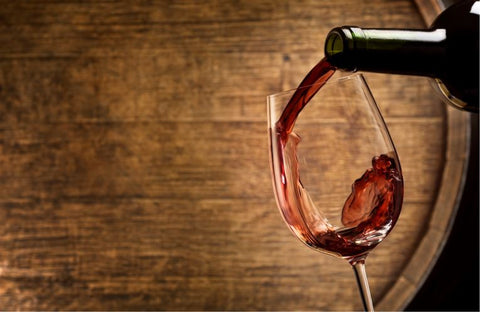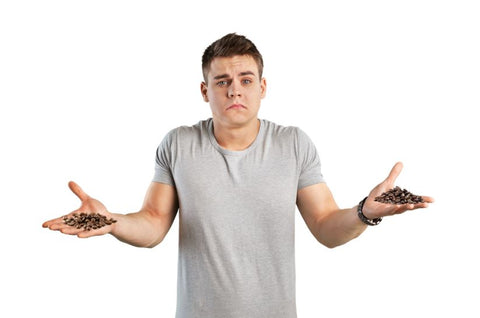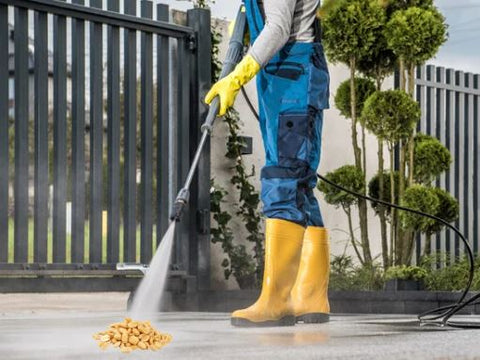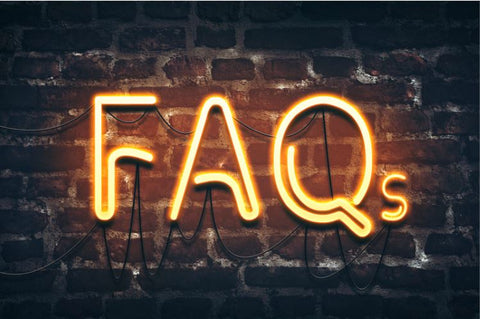Best Decaf Coffee Beans
So you love coffee, me too, obviously, but that doesn’t necessarily mean you love the psychoactive drug known as caffeine, so for anyone who needs to avoid caffeine for whatever reason, this article will help you find the best decaf coffee beans.
Decaf coffee doesn’t have to taste like dirt, even though it was recently ground (the old ones are the best, wait, no they're really not!), and it may surprise you to know that the poor-tasting decaf coffee we’ve all experienced in the past, probably has relatively little to do with the reduction in caffeine!
Before we talk specifically about the best decaf coffee beans though, let’s explore why decaf coffee has developed such a bad reputation over the years.
Why Most Decaf Isn’t The Best Coffee You’ve Tasted

The main reason most of the decaf we’ve consumed in the past hasn’t been the best, is that they’re not the best coffee beans to start with, it’s that simple.
It’s not mainly about the decaffeination process, although that can play a part and we’ll go into more detail on that shortly, it’s mainly that when you start out poor quality coffee beans, then decaffeinate them, its just never going to taste good regardless of the decaffeination process.
I think non-alcoholic wine is a good analogy to use here.
If you’re partial to a fairly decent bottle of red, as I am, you’re not going to pick up just any bottle of red off the shelf, if you’re drinking it for the taste and not just to get hammered.
I do like white wine too by the way, but only for helping to clean red wine off the carpet ;-).
It would probably be obvious to most people that the most important consideration when it comes to how the wine is going to taste, is the grapes used, and the skill of the winemaker.
You’d expect great wine to be made using great grapes and a winemaker with great skills, wouldn’t you?
If you had to cut down on your alcohol intake, and you were looking for an alcohol free wine, the taste is going to be just as important, arguably more important as all you’re going to get from the wine is the taste.
The old “it’ll taste fine by the time I get to the last glass” doesn’t quite work with alcohol free ;-). So you wouldn’t just waltz up the wine aisle, pick up any bottle labelled zero booze and lob it in your basket.
It’s exactly the same with decaf coffee. While a great wine stems from great grapes and a great winemaker, great coffee stems from great coffee beans and a great roaster, whether it’s decaf or not.

The Rise of Decaf
As was the case with vegetarian and vegan food until fairly recently, decaf coffee has been largely an afterthought up until quite recently.
Not just by brands, coffee roasters and retailers, I actually think that generally speaking decaf coffee has been an afterthought among most coffee drinkers too.
Many people have told me that their idea of keeping decaf in, is to have an old bag of pre-ground decaf festering at the back of the cupboard somewhere to unleash on unsuspecting family or friends.
Even people who mainly drink decaf I think have been overly tolerant to poor quality decaf, for example purely drinking instant coffee because they’ve made the decision that since they “only drink decaf” it doesn't make sense to invest in a grinder or an espresso machine.
Best espresso machine recommendations.
Best Coffee Grinder Recommendations.
This reminds me of my experience as a TV extra, I did it for a few years before I was involved full time in the coffee industry, and the vegetarian options were often a mere afterthought back then. I usually took my own food just in case there wasn’t a vegetarian option at all!
One day in the middle of a field somewhere around Manchester, after a long morning of pretending to be a bouncer at a festival organized by the Maguire family (series 11 episode 7 if you're interested), I got to the food truck to find that the vegetarian option was half rice, half chips ;-).
I don’t mean these were the side options, I mean that was it, a plate containing rice and chips! Needless to say lunch wasn’t the highlight of that day. I did have some great experiences as an extra though, one of which was chatting with David Bradley, Filch in Harry Potter, Walder Frey in Game of Thrones, really nice guy too!
I digress, but the point is as with vegan and vegetarian food, decaf is no longer being treated purely as an afterthought, it’s been given the attention it deserves especially within the speciality coffee industry.
So if you want to drink decaf, either purely to replace caffeinated coffee, or occasionally so you can reduce your caffeine intake or so you can drink coffee later in the day, you don’t have to resort to drinking coffee that doesn’t taste good.
What is Decaf Coffee?

I think this is a good place within this post to just make sure we’re all clear on what decaf coffee is, by taking a step back and ascertaining exactly what coffee is.
What we know as a cup of coffee is a beverage made by extracting the soluble compounds from the roasted seeds of the coffee tree. You knew that, of course.
What we call coffee beans (they’re not actually beans but again you probably know that, they resemble beans which is why they were labelled “coffee beans” and that name stuck) are amazing little parcels packed full of natural elements, just one of which is caffeine.
What you might now have known is just how low the % of caffeine is, by weight, in coffee beans compared to things like proteins, tannins and oils. Caffeine tends to be the most noted natural ingredient of coffee, which is natural given that is is a drug after all, but it's worth pointing out that there are masses of other elements in coffee beans aside from caffeine.
We’re talking about around a thousand different chemical compounds, and that’s probably a figure you’ve heard repeated many times in the past if you’ve been into speciality coffee for a while, but what may surprise you is that when it comes to taste specifically, there are 300 different natural chemicals in green, unroasted beans and 850 in roasted coffee that contribute to taste.
Don’t take my word for that, by the way ;-), all of these elements are listed by Ivon Flament in his book “Coffee Flavor Chemistry” which you can buy from Amazon if you have a spare few hundred quid!
So coffee is a hugely complex beverage full of all kinds of naturally occurring compounds, and this is the case for both caffeinated coffee and for decaf coffee.
The only difference is that decaf coffee has had much (not all) of the caffeine removed.
So if you’re wondering if decaffeination leads to a lesser tasting coffee, the answer is that it can do depending on the decaffeination process, but it doesn’t have to.
As we’ve ascertained, the main reason decaf would taste like muck would be if poor tasting coffee was decaffeinated, so if we’ve selected high quality coffee for decaffeination it’s important that these beans are decaffeinated in a way which only removes the caffeine, and has as little impact as possible on the myriad of substances responsible for many of the flavour notes it has to offer.
It isn’t the reduction of caffeine that can leave decaf coffee not tasting the best. If they were great quality coffee beans to start with, it’s probably that the few hundred other taste related compounds in green coffee beans have been reduced by harsher decaffeination processes.
Actually there’s at least some evidence pointing to a reduction in caffeine actually allowing coffee to taste better, or at least less bitter and more sweet, if that’s what you class as “better” as taste is very subjective.
A Cornell University Study, found that subjects noted a reduction in sweetness and an increase in bitterness in food & drinks containing caffeine. This is probably why some of the best decaf coffee tends to be high in sweetness, and relatively low in bitterness.
So if we could reduce the caffeine while leaving all of the other naturally occurring chemical compounds in tact, then we stand a chance of enjoying that coffee at its very best in terms of taste, regardless of the great reduction in caffeine.
We can do that, and we do that by using less harsh decaffeination processes, which leads us nicely to:
How is Coffee Decaffeinated?

There are four methods of decaffeination, direct solvent processing, indirect solvent processing, water processing and Carbon Dioxide Processing.
Direct solvent processing is where the beans are steamed to open the pores, and they’re then soaked in a chemical solvent, which is then removed along with the caffeine.
This was the first method of decaffeination, and it began with harsh chemicals including benzene which have since been banned in food use as it came to light that they’re carcinogenic.
These days direct solvent decaffeination usually involves ethyl acetate or methylene chloride.
This is the one decaffeination process in particular that is likely to be responsible for stripping away other elements that we don’t want to be reduced, leading to a reduction in flavour including some of the more subtle flavour notes that the beans would have had to offer before direct solvent decaffeination.
Thankfully when it comes to speciality coffee at least, you’re unlikely to find many decaf coffees these days that are decaffeinated using the direct solvent process.
Indirect solvent processing uses similar chemicals, but it’s done in two stages.
In the first stage the green (unroasted) coffee beans are soaked in hot water for a number of hours, to create a “charged water”, water which has taken in chemical compounds from the coffee, including but not limited to caffeine.
This charged water is moved into a separate tank with the solvent, it bonds with the caffeine and is then removed, thus removing the caffeine from the charged water but leaving the other compounds in tact.
This charged water is then reintroduced to the beans, so that any of the good stuff that was removed can be soaked back into the beans.
The Carbon Dioxide decaffeination method is a relatively new process, which is quite expensive at the time or writing so it’s more commonly used for large volumes of commodity coffee.
The coffee beans are soaked in water and then transferred to what’s referred to as the extraction vessel, in which liquid CO2 is introduced under high pressure (just under 70 bars, 1000 PSI).
The caffeinated CO2 is moved into another chamber, the pressure is released, and then the caffeine is removed with charcoal filters so that it can be sold.
The water decaffeination process, sometimes called “mountain water processing” or Swiss Water Decaffeination (if it has been done by the Swiss Water company), is a non-chemical process first developed in the thirties in Switzerland.
This is a process in which a charged water is created, similar to with the indirect solvent process, this charged water is used to remove the caffeine, the matching molecules (including the 300 aforementioned compounds relating to flavour) in the beans stay where they are, and it’s only the caffeine that is removed.
Which Decaffeination Process Creates the Best Tasting Decaf?

When it comes to speciality coffee, the most common decaf coffee beans are decaffeinated using the water process or the indirect solvent (commonly methylene chloride, or the “MC method”, often also referred to as the sugar cane method as sugar cane is often fermented to make the methylene chloride).
When it comes to these decaffeination processes, I think the beans themselves and the roasting, has a much bigger impact on flavour than the decaffeination process used.
When it comes to our coffee beans, we currently have two decafs, both using high quality speciality coffee beans which are decaffeinated using two processes.
Milk Chocolate and Caramel Decaf Peru

This is lovely single origin organic & fairtrade decaf with an SCA score of 83, so this is a good example of the quality of the beans being of paramount importance.
As you’ll see from the reviews - non of which were written by me, I hasten to add! ;-) - this is a stunning tasting coffee, that happens to be decaffeinated.
Would the same beans taste different if they weren’t decaffeinated, I’d say yes, all decaf processes are going to impact on the flavour in the cup, but the important thing is that these beans taste amazing, and as far as my tastebuds go these are the best decaf coffee beans we offer, in fact they’re the best decaf coffee beans I’ve ever tasted.
Milk Chocolate and Coconut Decaf Brazil
Get for 25% off your first order.
Another cracking single origin decaf, this one is a Brazilian (Bourbon & Catuai) which is decaffeinated using the indirect solvent method using Methylene chloride.
I really enjoy this decaf, I think it has very interesting sweet coconut and chocolate notes, and it is one of the better decafs I’ve tasted, but I won’t lie, my all time favourite decaf is the Milk Chocolate & Caramel Peru.
Does Decaf Coffee Contain caffeine?

Yeah, although “decaffeinated” would appear to suggest that it’s caffeine free coffee, it isn’t, it has the caffeine greatly reduced, but some remains.
How much caffeine is left in the coffee beans depends on the bean and on the specific decaffeination process, but in the UK to be classed as Decaf, coffee cannot contain more than 0.1% caffeine by weight.
Are There Benefits to Drinking Decaf Coffee?
Although the apparent health benefits or dangers of coffee appear to differ quite a lot depending on who you ask, it appears that the majority of the dangers associated with coffee are related to caffeine.
I say “it appears so” because actually I don’t think coffee has been researched nearly enough as of yet to make any definitive conclusions.
When it comes to the aforementioned 1000 bioactive substances found in coffee, only around 30 of them have actually been rigorously investigated, and there’s no scientific consensus as of yet about the health effects of any single compound, as far as I can tell, let alone all of them combined.
However there are numerous potential health benefits being reported by various research, including drinking coffee being beneficial in terms of reducing the risk of various health conditions.
The studies that have been done specifically on decaf appear to suggest that the majority of these health benefits are due to the various other chemical components in coffee including antioxidants and anti-inflammatories, rather than being directly linked purely to caffeine.
Here are are some of the studies I’m referring to:
Effects of Caffeinated and Decaffeinated Coffee Consumption on Metabolic Syndrome Parameters.
Drinking coffee could lead to a longer life, whether it’s decaffeinated or caffeinated.
Coffee Drinking and Mortality in Ten European Countries – the EPIC Study.
Best Decaf Coffee - The Moral of the Story...
Well, that sounds way better than "conclusion" anyway ;-), but to conclude, while you may expect me to say that our decaf coffee is the best decaf coffee - and as I've said, my absolute favourite decaf is our Chocolate and Caramel Peru, it's a stonking coffee that happens to be a decaf, in all honesty there are tonnes of great decafs out there that you may find to be the best decaf coffee beans for you.
In order to find the best decaf coffee beans for your taste buds, what I'd recommend is shift your attention away from the most obvious choices.
If you're someone who would usually buy the cheapest big name brands while doing your supermarket shopping, I'd encourage you to try high quality coffee beans, whether you're buying caffeinated coffee beans, or decaf.
When you buy tins or bags of commodity decaf from the most well known brands, you're buying a very specific type of coffee, and it's a very different market to speciality coffee.
Arabica coffee beans are they the best type of coffee?.
As you'll probably know, coffee is traded as a commodity, just like sugar, oil or rice, this is what is referred to as commodity coffee
It's traded and shipped by the container load, and regardless of the brand name on the product this kind of coffee is all remarkably unremarkable.
That's not to say it's no good, but to say that, generally speaking, it's a much of a muchness, and when it comes to decaf coffee, you'll probably find that you can work your way through all of the biggest known brands, and still not taste any decaf coffees that really make you smile.
Once you try speciality coffee, however, two things will happen, firstly you'll be completely spoiled for "mainstream" coffee, and secondly you'll come to know a whole new world of different flavours to be experienced from coffee, including decaf!
It's true to say that at present most speciality coffee suppliers and small batch roasters only tend to have one or two decaf options, and I think this is a reflection of the popularity of decaf, however this is changing!
As people cotton onto the fact that decent quality coffee can taste amazing when decaffeinated, more & more people are looking for decaf, so it's rare now to find a roaster that doesn't offer at least one or two great decafs.
We currently offer two decafs, and as a matter of fact our single origin Peruvian decaf is usually our second best seller, second only to the hugely popular chocolate brownie blend, and we do plan on introducing more decafs to the range in the near future.
We have a fantastic bundle deal so you can have the best of both worlds, Chocolate Brownie Blend which if fully loaded with caffeine and the Milk Chocolate and Caramel Decaf for when the need to be caffeine free takes your fancy ;-)
Chocolate Brownie Blend and Milk Chocolate and Caramel Decaf Bundle


Best Decaf Coffee beans FAQ's

Does decaf coffee contain caffeine?
Yup, decaf coffee does contain caffeine, although the amount is of course dramatically reduced, in the UK to be labelled as decaf coffee beans they have to contain no more than 1% caffeine by weight.
How is decaf coffee made?
Decaf coffee is made by staring out with normal full-caffeine green unroasted coffee beans, and then using one of the various decaffeination processes to remove the caffeine.
How is coffee decaffeinated?
When it comes to speciality coffee, coffee beans are usually decaffeinated using the water process (Swiss water if it’s specifically done by the Swiss water company in Canada), or the indirect solvent method, commonly the E.A method also know as the sugar cane method, as sugar cane is often used to make the ethyl acetate.
Does Decaf Taste Different?
It depends what you mean by different, if you were to get hold of the exact same coffee beans and try them full caffeine and decaf, then yes you’d probably notice a difference in taste, regardless of the process used.
If you mean should a bag of decaf coffee beans taste different from a bag of caffeinated beans, again, yes, but that’s to be expected, any two different beans will taste different, not just decaf vs full caffeine.
Does Decaf Taste Bad?
Well, it can do, but it’s not necessarily down to decaffeination. The reason we’ve all tasted bad decaf over the years is that brands, particularly mainstream brands, have chosen to use poor quality coffee beans for decaf.
If you’re buying high quality speciality coffee beans, they shouldn’t taste bad, whether they’re decaf or not.
Which is the best decaf coffee?
Best is a very subjective word, as we all have different tastes, but generally speaking the best quality decaf is going to be decaf that is made using the best quality coffee beans, so if you’re buying your decaf from a small batch specialty coffee roaster or specialist supplier, you’re more likely to find the best decaf coffee for your taste buds, vs buying mainstream decaf from the supermarket.
Yes, Starbucks decaf coffee is made using the Swiss Water Process, which removes almost all of the caffeine from the coffee beans.
Does any decaf coffee taste good?
Yeah! In fact I’d go so far as to say that ALL high quality speciality decaf should taste “good”, although good is a bit of a vague term when were discussing something as subjective as taste.
Remember, it’s the quality of the coffee beans before they’re decaffeinated which really determines whether the coffee will taste good in the cup or not.
What is Mountain Water Decaf?
What is commonly referred to as "Swiss water decaffeination" can only be officially labelled as Swiss Water on coffee that was decaffeinated by the Swiss water decaf company, who at the time of writing does all of their decaffeination in Canada.
There are decaffeination plans, however, in Mexico and Colombia, which use a water decaffeination process using mineral water from the mountains of the are, hence the "mountain water" reference.


